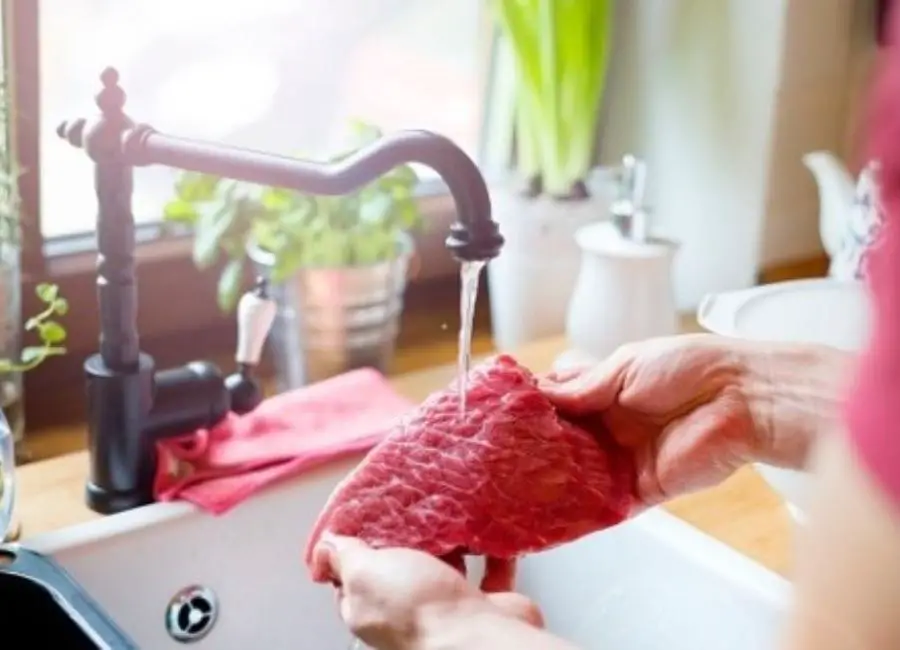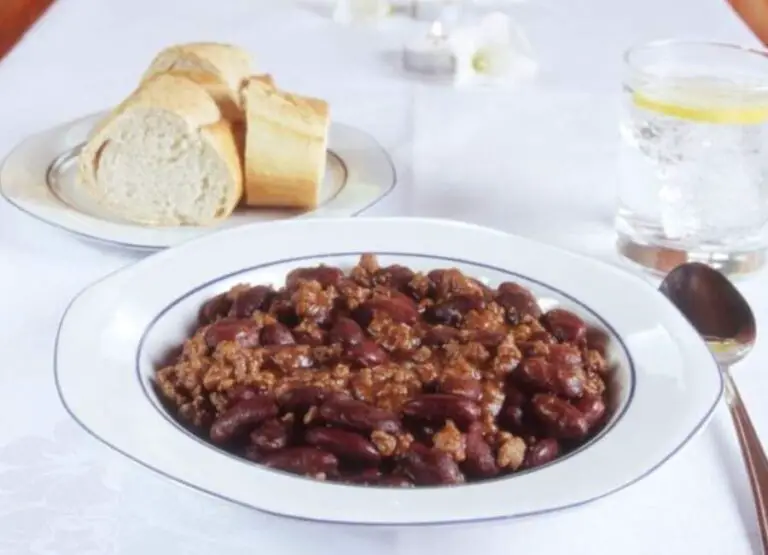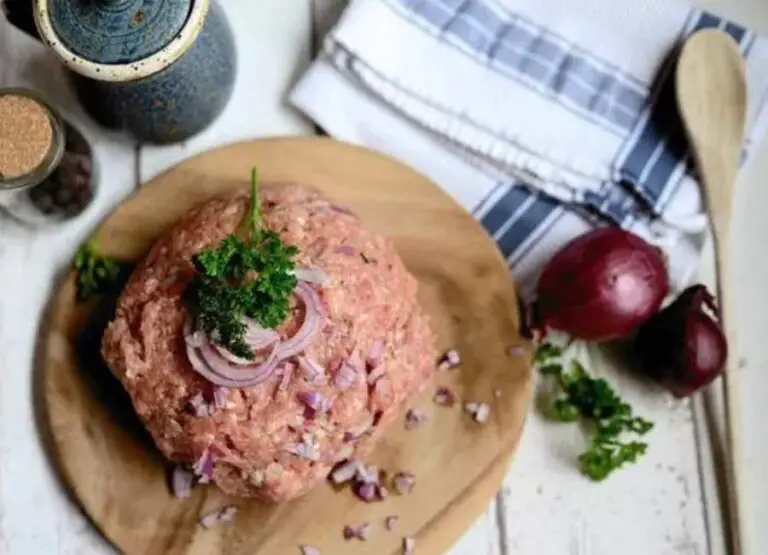Should Beef Be Washed Before Cooking
Should beef be washed before cooking is exactly what this post is all about so keep reading to find out more!
Meat is a common food in many diets and a good source of protein and other essential nutrients.
Traditionally, in most places around the globe washing meat is very common, and it is considered to be part of food hygiene.
This article will give answers to whether this practice is valid or not, and the benefits and risks of washing beef.
What does it mean to wash meat?
Washing a slice of meat means rinsing chopped meat or a cut of meat in water to remove remnants of the skin.
In common places like markets where this meat is slaughtered fresh for you.
You must rinse the meat thoroughly to wash away broken bones and bloodstains that may have stuck to the meat during slaughtering.
Should beef be washed before cooking
There is no right answer to this question as everyone’s opinion on the matter may differ.
However, some people believe that beef should be washed before cooking to remove any harmful bacteria that may be on the meat.
Others believe that this step is unnecessary and that any harmful bacteria will be killed by the cooking process.
Ultimately, it is up to the individual cook to decide if they want to wash their beef before cooking.
The Centers for Disease Control and Prevention (CDC) warns that washing meat with only running water doesn’t remove foodborne pathogens.
However, it is said that washing these meats with an acidic solution like vinegar or lemon juice helps to kill some bacteria on the surface of the meat.
Washing meat with only plain water can lead to the spread of bacteria around the cooking area.
This is caused by the splashing of water from the raw meat surface to the utensils and cooking surfaces.
This spreads food-borne diseases and increases the risk of food poisoning.
Read more: Where Should Raw Meat Be Stored In A Refrigerator.
Acidic solutions used in a meat preparation
Lemon or lime juice: These fruits have been found to reduce bacteria in meat and retain the flavor of this meat when cooked.
Food-grade sodium hydroxide (NaOH): NaOH prevents molds and bacteria from growing on the surface of the meat.
White vinegar: This is a cooking ingredient that is commonly used in washing meat, the acidic content reduces bacterial growth on the beef.
According to CDC, these acids have not yet been confirmed to destroy food-borne diseases and viruses.
So it is advised that meat be cooked thoroughly to enable it to kill all harmful germs.
Ways to practice food hygiene at home
Wash hands often with running water for and least 20 seconds, and scrub surfaces such as sinks and chopping boards before and after use.
Cook meat to the proper temperature to kill harmful pathogens and make it healthy to eat, saving you from foodborne illness.
Separate raw foods and ready-to-eat foods to avoid cross-contamination and the spread of germs.
Benefits of washing meat before cooking
1) Meat that has been washed before cooking is less likely to contain harmful bacteria.
2) Meat that has been washed before cooking is less likely to taste bitter.
3) Meat that has been washed before cooking is less likely to contain unwanted fat.
4) Meat that has been washed before cooking is less likely to contain unwanted blood.
5) Meat that has been washed before cooking is less likely to contain unwanted hair.
Disadvantages of washing meat before cooking
-It can increase the risk of food poisoning
-It can decrease the flavor and quality of the meat
-It can increase the risk of bacteria growth
-It can increase the risk of adding unwanted water weight to the meat
-It can decrease the shelf life of the meat
Steps to washing meat
- Clean and lubricate the meat with a penetrating oil or fat.
- Soak the meat in a saltwater solution.
- Rinse the meat and soak it in freshwater.
- Sprinkle the meat with salt.
- Dry the meat.
- Grind the meat.
- Cook the meat.
Conclusion
It is unsafe to wash your meat with plain water because of the bacteria on the surface, which can cause more harm than good to the body.
The use of lemon juice and white vinegar is preferable, as this may reduce the number of these bacteria on the meat.


![Thawing Ground Beef On Counter [Useful Tips]](https://foodcreeks.com/wp-content/uploads/2023/03/Thawing-Ground-Beef-On-Counter-768x555.jpg)
![What Do You Need For A Charcoal Grill [15 Things]](https://foodcreeks.com/wp-content/uploads/2023/03/What-Do-You-Need-For-A-Charcoal-Grill-768x555.jpg)

![Can You Get Sick From Eating Old Hot Dogs [Hints]](https://foodcreeks.com/wp-content/uploads/2023/05/Can-You-Get-Sick-From-Eating-Old-Hot-Dogs-768x555.jpg)

![Are Sausages Good For You [Useful Hints]](https://foodcreeks.com/wp-content/uploads/2023/02/Are-Sausages-Good-For-You-1-768x555.jpg)